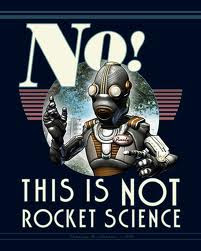 I find this ironic: a ScienceBlogs (corrected from my original post stating it was a Huffington Post blog) called the Denialism Blog, subtitled “Don’t Confuse Denialism With Debate,” is upset because the HP published Bruce Friedrich—the beta wolf of the maniac PETA—in the science section reviewing a pro animal rights movie. But author Dr. Mark Huffnagle jumps the shark himself by complaining that Huffpo thereby breached its role as “being a haven for reason in a den of disease-promotion and quackery,” his perspective, of course, being an example of a “haven for reason.” My, my: If he doesn’t say so himself.
I find this ironic: a ScienceBlogs (corrected from my original post stating it was a Huffington Post blog) called the Denialism Blog, subtitled “Don’t Confuse Denialism With Debate,” is upset because the HP published Bruce Friedrich—the beta wolf of the maniac PETA—in the science section reviewing a pro animal rights movie. But author Dr. Mark Huffnagle jumps the shark himself by complaining that Huffpo thereby breached its role as “being a haven for reason in a den of disease-promotion and quackery,” his perspective, of course, being an example of a “haven for reason.” My, my: If he doesn’t say so himself.
Huffnagle and his co-author brother, are the ones who are confused. First, here is how they define “denialism.” From the Denialism Blog:
Denialism is the employment of rhetorical tactics to give the appearance of argument or legitimate debate, when in actuality there is none. These false arguments are used when one has few or no facts to support one’s viewpoint against a scientific consensus or against overwhelming evidence to the contrary. They are effective in distracting from actual useful debate using emotionally appealing, but ultimately empty and illogical assertions.
Okay, but that isn’t what the Denialism Blog seems to be about. For example, one recent post claims that the plaintiffs’ cases against Obamacare are “imploding.” That may or may not be true, but holding a different position is hardly a “viewpoint against a scientific consensus or against overwhelming evidence to the contrary.” Ditto a blog criticizing Idaho legislation that allegedly would require an invasive ultrasound before an abortion. Some would certainly agree with the blog’s opinion that such proposals are “an assault on reproductive freedom,” but that assertion is a political position, not science.
The Huffnagles often argue on behalf of their own ethics, ideology, and political beliefs, presuming their subjective polemics to be a defense of objective science. In other words, scientism. The anti-Friedrich post is another case in point. From “Huffpo Science Already Slipping Into Anti-Science:”
Writing about “Speciesism: The Movie”, he exposes the anti-science ideology of the animal rights movement, and Huffpo science doesn’t seem to have noticed:
Every now and then, a movie comes along that is capable of fundamentally changing the worldview of its audience. Speciesism: The Movie, a new documentary by Mark Devries, is that kind of film. The word “speciesism,” which has been popularized by Princeton bioethicist Peter Singer, refers to the assumption that a vast gulf exists between the ethical value of human interests and the ethical value of the interests of other animals. At its extreme, we may see ourselves as the only species that matters morally, and view other animals as existing merely for our use: to eat, to make into clothing, to perform experiments on, to be entertained by in circuses and zoos. Like those who grew up having overt racist beliefs assimilated into their worldview, some degree of speciesism has been so well-assimilated into the worldview of most of us that it does not even appear to be worth questioning.
My emphasis added. So here we have it on Huffpo science. Believing that our species should be valued over other species is a sin equivalent to racism. Use of other animals is like slavery. Biologists aren’t scientists we’re “vivisectors”. We’re all going to hell.
Far be it for me to defend Friedrich. Indeed, Hoofnagle’s criticism about the animal rights’ perspective is, in my view, absolutely right. But Friedrich’s supporting of the concept of “specieism” is not “anti-science,” at least not in the way the authors of Denialism Blog define what their site is about. Rather, it is an ethical perspective, albeit an anti human viewpoint with which Hoofnagle and I disagree.
Further illustrating my point, Hoofnagle launches his own defensive rant that also isn’t really about science, properly understood:
Every major surgical advance, medical advance, and plain basic biological science knowledge comes from our manipulation of the living things around us. But are we in any way noble for our pursuit of knowledge, for yes, explicitly human benefit? No, we’re speciesist, we’re vivisectors. Well fine, I admit it. I value human life over that of other species. I’ve devoted my life to saving human lives, and as a scientist, I’ve sacrificed animal lives to do so every time I’ve ordered a polyclonal antibody or bottle of FBS. According to radicals like Friedrich that makes me “vivisector”. I’m therefore a monster, like a slaver or murderer. This is the unexamined ethics and thoughtless smug moral superiority of the animal rights activist.
Right on. But again, that obnoxious perspective isn’t the same thing as denying scientifically demonstrated facts.
Opposing animal research based on heterodox ethical perspective isn’t “denialism.” Nor is promoting veganism. Indeed, when les freres Hoofnagle offensively smear those who whom they disagree about beliefs as “deniers,” they conflate science with ideology and facts with personal opinion. By so doing, they not only blur the definition of science but undermine the very sector that they presume to be defending. Indeed, perhaps they shouldn’t be in the Huffington Post “science section.”
